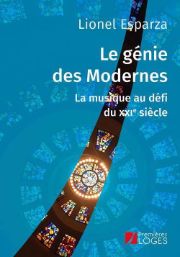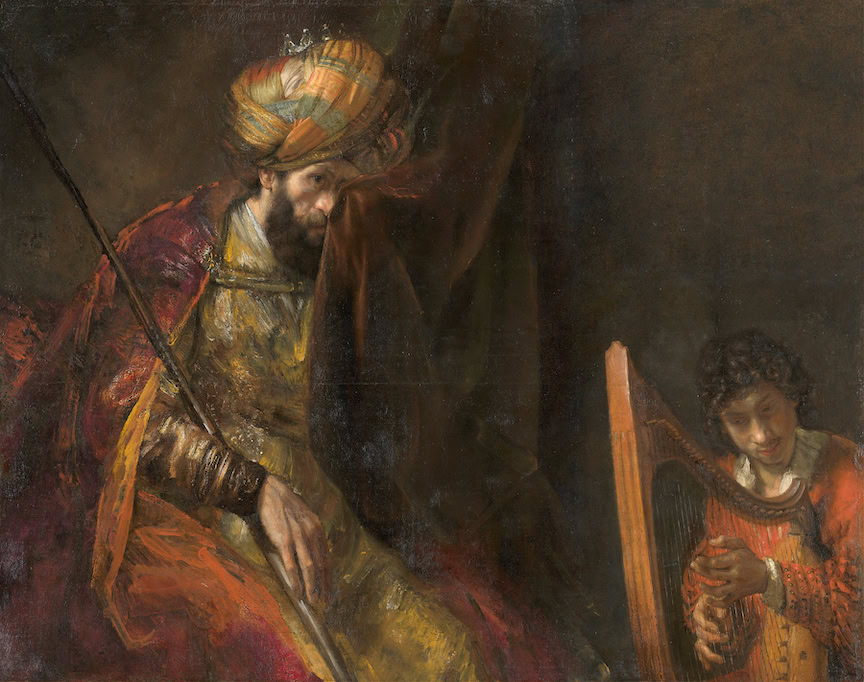Music for the 21st century
This essay by Lionel Esparza seeks to understand why classical music today seems disconnected from its environment.

Has classical music reached the end of its evolution? Has it failed to adapt to the evolution of Western societies, in which it is now no more than an entrenched camp in the midst of a flood of largely commercial music?
In this brilliant essay, Lionel Esparza seeks to understand why classical music today seems disconnected from its environment. Hasn't rock, after youth and the working classes, reached the elites, be they economic, political or even intellectual, even making its way into research criteria? We've come a long way from the days when music held important positions and claimed to be universal. The opening remark about the absence of any representative of the French state at Henri Dutilleux's funeral (the Minister of Culture preferred to attend Georges Moustaki's) is revealing in this respect. And yet, in the 20th century, the French state became the main supporter of this type of music, replacing the former patrons, the "State. be The "elusive" nature of music does not lend itself well to the market in which works of visual art are traded. And the author wonders why, in the final analysis, it continues to finance an art form that has become indifferent to it, the Gallic project of sharing learned culture, inspired by Malraux, having been diverted, under the impetus of Jack Lang, towards the valorization of individual creativity and a "cultural whole" that ties art to economic interests.
The book's central thesis concerns the consubstantial link between music and the sacred, and the resulting gap with desacralized modern societies: "the classical field functions as a space of sacredness", writes the author, referring to the score as a "sacred text" and the performers as officiants. Classical music would thus have prolonged this relationship with religion and transcendence, of which modernity and the post-war avant-garde would have been the last avatars, and even, for Esparza, the last attempts to rescue it. This is why, despite Cage's efforts in this direction, music never managed to be truly "contemporary", technical reproducibility giving it the coup de grace by destroying its aura. Retracing history in great strides, the author focuses on the moment when this sacredness took the form of absolute music, in Beethoven's time, and when the craftsman became a genius, the employee a free artist, the composer dissociated from the performer.
However, the well-known thesis that music, from Beethoven onwards, transforms religious categories into aesthetic ones, leads not so much to a new alliance between music and religion as to an awareness of music as a form of thought in its own right, a thought not based on reason but on the sensible, and in which the body plays an essential role (something already outlined in Diderot's Neveu de Rameau and theorized by the early German Romantics, giving music a role as a model for the other arts). This musical thought had always been present, but, subordinated to religious content, it could not be expressed as such. As a result, modernity is less a continuation of music's religious character than it is a consequence of this newly acquired autonomy. Having become "a world in itself", as Tieck put it, it no longer presents itself as an art of imitation or reproduction, and renounces any determined social function, which leads it to constantly transform its own language. In this sense, and insofar as it does not renounce this demand for thought, it produces meanings of its own that remain untranslatable in any other medium. Certainly, it is threatened by routine and commercialization on the one hand, which distorts the relationship with the repertoire, and by the music of immediacy on the other, which so aptly reflects general alienation; it also suffers from the confusion of values that characterizes the historical moment. And yet, "at the heart of the modern tear", as Esparza rightly puts it, it remains a form of critical consciousness in which the sacred, the religious, the magical, but also the complexity of affects, the force of drives and the power of reflection are all at once absorbed, overcome and reconfigured. That this essential task demands a form of attention that opposes the zapping making creation a site of resistance, should not lead us to oppose, as the author does, asceticism and enjoyment. For these categories are not only ideological, they are also mediated by compositional work, which questions their relationships in order to overcome them.
Lionel Esparza: Le génie des Modernes. La musique au défi du XXIe siècle, 300 p., € 21.00, Premières Loges, Paris 2021, ISBN 978-2-84385-371-5









